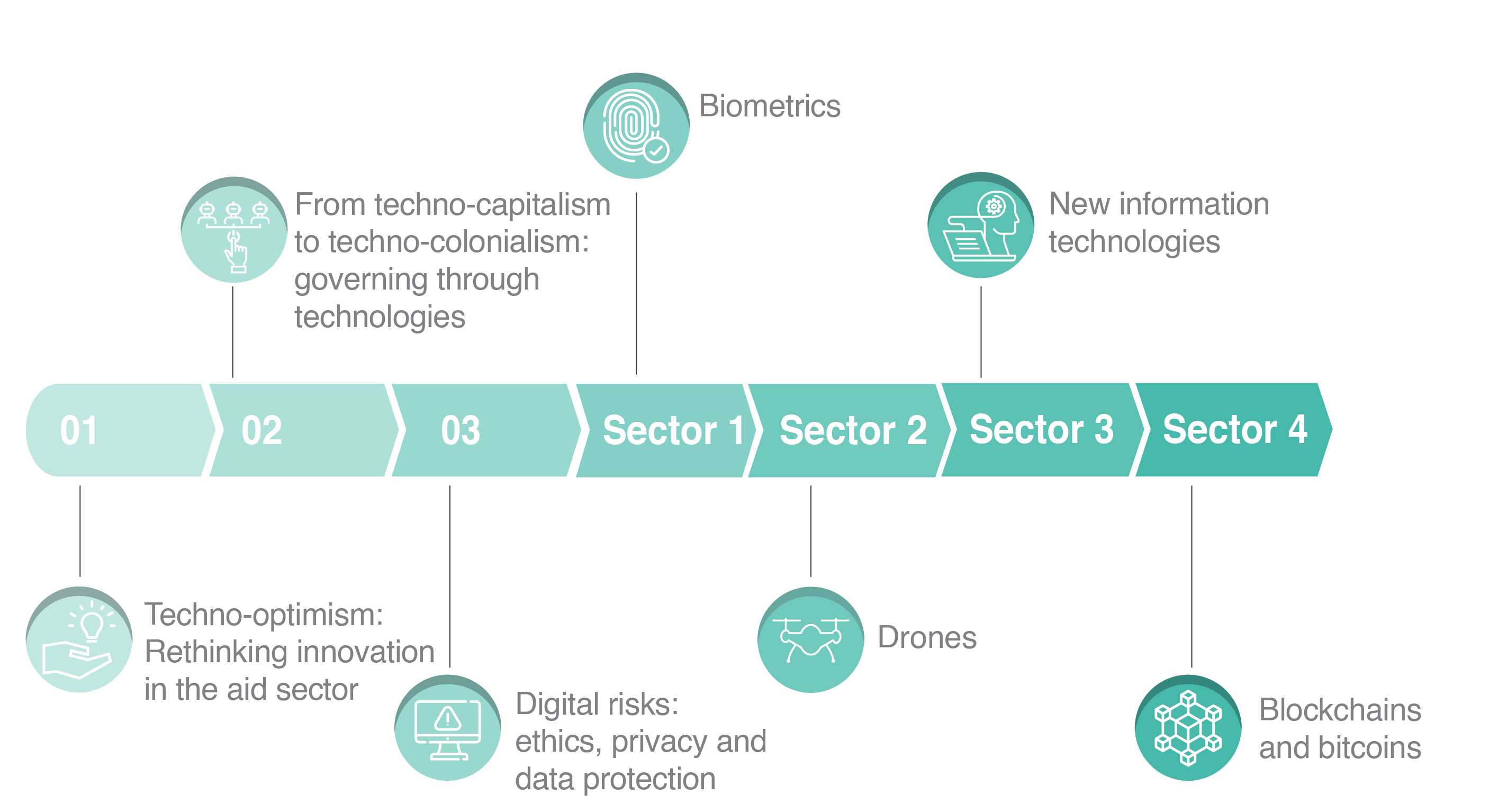Since the 2016 World Humanitarian Summit, the use of digital innovations and new technologies is increasing to provide humanitarian assistance. While it shows the prevalence of data revolution in the aid sector, the relation of humanitarian organisations to innovations is not unprecedented.
The growing involvement of tech companies in global philanthropy has only accelerated this ‘innovation turn’. From crowd-sourced data used in crisis mapping to the expansion of drones to facilitate relief distribution, humanitarian innovations capture a large diversity of digital devices meant to improve needs assessments, relief and protection during disasters, conflicts and migration.
Exploring the entanglements between innovation labs, start-ups and humanitarian governance, this course analyses opportunities and challenges of such innovations beyond tech utopia, to consider ethical as well as privacy and protection issues.
Admission requirements:
- A Bachelor’s degree or equivalent from a Swiss or foreign university;
- At least two years of relevant professional experience;
- Excellent command of English (see below)
Documents required:
- CV (Resume)
- Cover letter (explaining what is the reason why you apply for this course and how will the acquired skills help you in your career)
- Employer’s funding agreement, if applicable
- Highest educational qualification obtained
- Work certificate or official document of your current job position
- Proof of English language competence to be dated less than 2 years (see details below)
- Portrait photo (ID format)
- Scanned copy of the passport
Language Requirements
The minimum required English level is B2. Providing a language certificate is mandatory, except in the following cases:
- If you are a native English speaker, please provide a copy of your passport as proof.
- You have been studying in English for at least three years: please provide a certificate from your institution, your transcript or your diploma.
- If you have worked for at least five years in English with MSF or ICRC, please provide a copy of the English test you have undertaken internally with your employer.
Recognized Tests and Scores:
-
- Cambridge English First (FCE) 160-179
- Cambridge English Preliminary (PET) 160-170
- B2 Business Vantage
- IELTS 5.5-6
- TOEFL iBT 72-94
- TOEIC Listening & Reading 785
- TOEIC Speaking & Writing 310
- PTE Geneval Level 3
- PTE Academic 59-75
- Duolingo : 110
- EF SET (CEFR) : B2
More information about the admission process is available on our application page.





Designation: Senior Lecturer and Researcher in History and Communication // Head of Learning